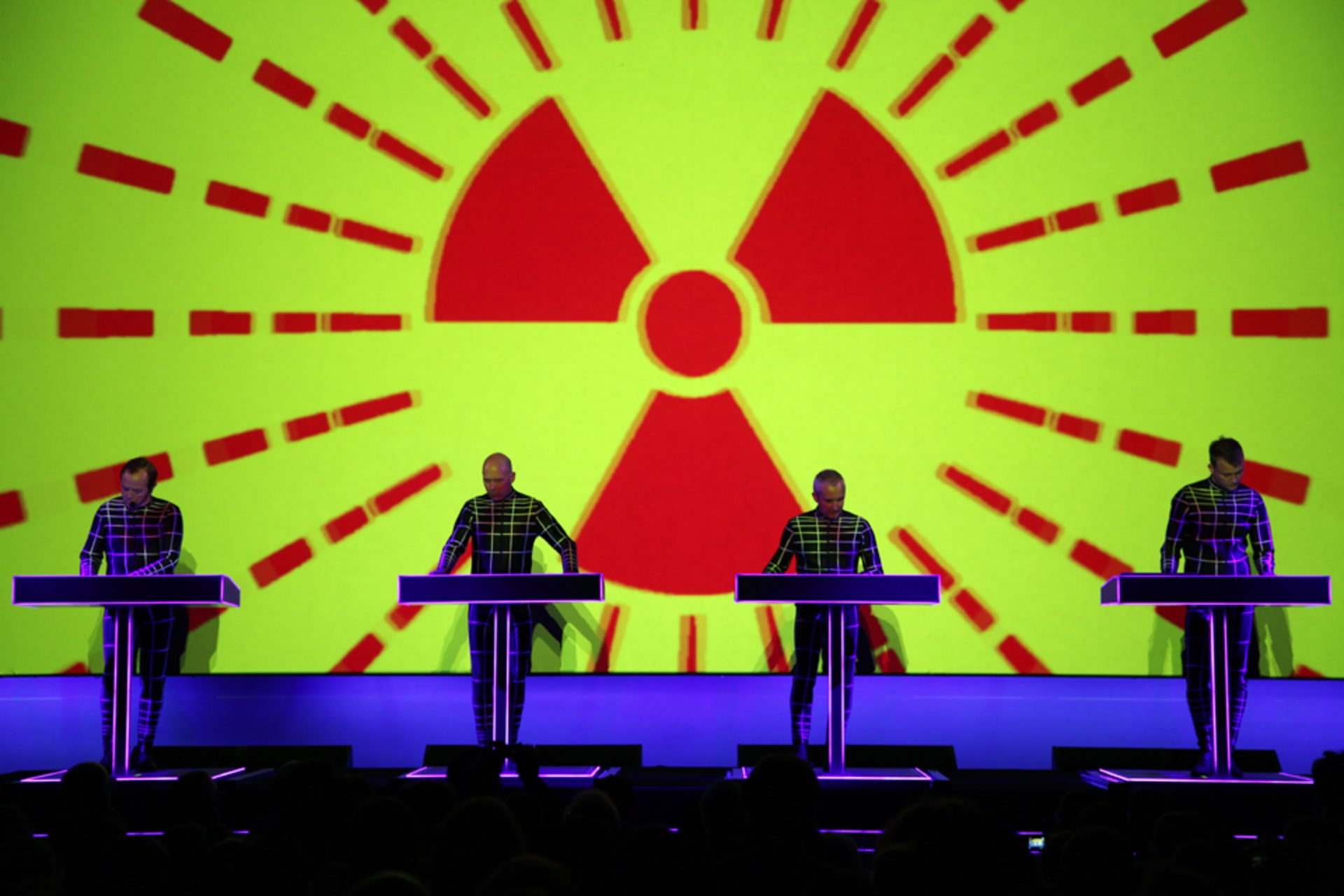
Afrika Bambaataa on Kraftwerk
It’s always interesting for me to see a crowd dancing to music that’s ‘foreign’, especially if the lyrics are in a foreign language. Miriam Makeba, Manu Dibango, Salsa, Falco—you name it. That’s why when I first picked up a copy of the English version Trans-Europe Express, I made sure to pick up a German copy too. I love the crossing over. That’s what electro-funk was all about in the beginning. I actually listened to it for the first time on one of those little record players—the ones that have their own speaker. I liked it, but only when I put it on my big sound system was I really blown away. All I could think was, “I’m gonna jam this mother!”
The first time I played it was at the Bronx River Center and immediately people understood. I always had the most progressive hip-hop audience. Most of the other DJs waited to see what my audience was into before they played anything at their function. They knew: Bambaataa’s crazy and he’ll play anything, so I was like the one in the laboratory doing the experiments first, and at a special place. In the beginning, Bronx River Center had mostly black and Latino partygoers from the Bronx and north Manhattan. Then as things progressed and we started playing on different systems and downtown and all that, that’s when all the new wavers started coming and it became a whole mixed atmosphere from all over the city. But most, like, ‘famous’ people came to see us—Zulu Nation and Soulsonic Force—at the Roxy. That’s how the electro-funk spread. But it’s not exactly where it began.
To me, Kraftwerk always sounded European. Trans-Europe Express especially. But I understood the train and travel as a metaphor for transporting the sound through the whole universe, and so was their influence and power. Whenever I felt the band’s vibration all I could think of is that this is some other type of shit. This is the music for the future and for space travels— along with the funk of what was happening with James Brown and Sly Stone and George Clinton. Of course, I was listening to a lot of Yellow Magic Orchestra and Gary Numan, as well as Dick Hyman’s Moog sound, and music from John Carpenter’s Halloween. When you put all that together, then you get electro-funk, which is what we were doing. Freestyle and Miami bass— that’s where it all came from. That’s the true techno-pop.
With ‘Planet Rock’ I was hoping to stretch the hip-hop community’s musical spectrum on the one hand, and the new wavers’ on the other. It was about channelling the vibrations of the supreme force, of the universe, to maximum effect, even beyond earth to the extra terrestrials. Kraftwerk, James, Sly, and George played exactly that. But Kraftwerk brought the funk with machines and computers. They might not have thought they were doing funk, but they were doing funk. When you see older movies about space and the future, it’s filled with stuff like spaceships and rayguns. The newer ones like The Matrix or whatever have their own vision of what’s next. Kraftwerk does all that with music.
When I met Kraftwerk in a club in Paris in the eighties, there was mutual respect. We talked about doing something together, but that happens all the time. Unfortunately we never got to make that happen. But I did get to record in Conny Plank’s studio with Afrika Islam. It’s interesting to think about how Kraftwerk was reinterpreted in America, and then through a very different filter came back to Germany to influence all sorts of electronic and techno acts. The name WestBam, short for Westfalia Bambaataa, says it all.
I’m definitely glad I had the opportunity to catch them at the MoMA. Of course, I’d seen them play live before and I have all sorts of live recordings from back in the day, but this was a different thing. I really enjoyed it, but to be perfectly honest, it wasn’t the same as hearing them in a club.~
Earlier this year we where reporting from the Kraftwer Retrospective 1 2 3 4 5 6 7 8 at New York’s MoMa, where we collected a lot of interesting takes on the legendary techno innovators from the likes of Juan Atkins, Afrika Bambaataa, Klaus Biesenbach and more – Read them here.
Photo: Max Dax
Published November 13, 2012.
